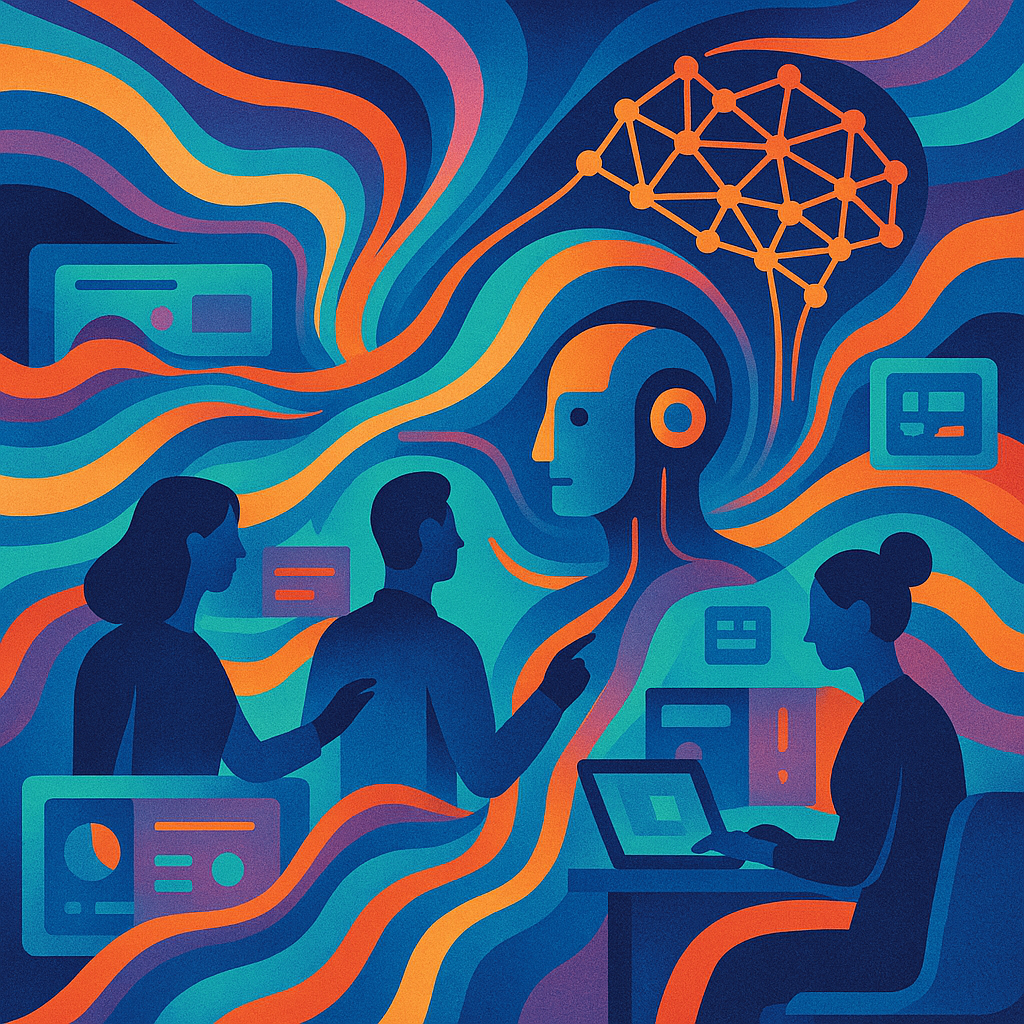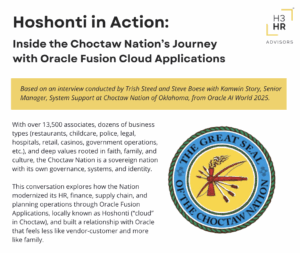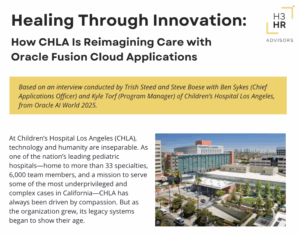AI Proficiency: The New Workplace Essential
July 17, 2025
Over the past year, a growing number of companies have made a significant shift in how they evaluate and develop their employees. Increasingly, organizations are formally requiring employees to adopt and become proficient with artificial intelligence tools in the workplace. What was once considered optional or experimental is quickly becoming table stakes for career advancement, raises, and even job security. This shift, rapid and perhaps catching many workers unprepared, has some important implications for organizations as well as for employees and their career paths and prospects.
Take what has been happening at tech colossus Microsoft. There, AI usage is now being explicitly tied to employee performance reviews. Internal communications reveal that managers are being asked to assess how well employees are incorporating AI tools, such as GitHub Copilot, and more into their workflows – right alongside more traditional performance evaluation criteria like communication and collaboration. In some cases, employees designated as “critical AI talent” are receiving special attention in retention planning, making AI skills not just a nice-to-have but a must-have for career growth.
Microsoft is far from alone in slating AI into key talent processes.
Companies like Duolingo, Shopify, Box, and Meta are increasingly labeling themselves “AI-first,” and they expect employees to keep pace. At Duolingo, for example, leaders have already eliminated contractor roles for tasks that generative AI tools can perform. Plus, internal evaluations at the company now include how effectively staff members use and make decisions about AI tools. Shopify’s leadership has gone even further by requiring managers to justify any new hires by showing that the work cannot be automated by AI. Shopify’s CEO Tobi Lütke summed up the new reality bluntly: opting out of AI at work is no longer feasible.
This AI-first expectation is also reshaping hiring trends. According to recent LinkedIn and PwC data, employers are increasingly seeking candidates who are not just familiar with AI, but fluent in using the new technologies. Many executives now say they prefer to hire someone with strong AI skills over someone with more experience but weaker digital fluency and AI proficiency. In fact, 66% of executives in one survey reported that they now require AI proficiency even in non-technical roles – suggesting that soon perhaps almost every role will have some type of AI skill requirement.
Despite these changes at the top, many employees and managers are still playing catch-up. While C-suite leaders claim to be offering AI training, some surveys have reported that fewer than 25% of workers report receiving any relevant training. Many workers are also hesitant or skeptical about using AI tools. This could be due to either a lack of trust, unfamiliarity with the tools in a workplace context, or fears about contributing to their own job replacement. This growing divide between leadership mandates and employee readiness poses a challenge for organizations hoping to make a smooth transition into the AI-powered workplace. Simply put, it is unfair to require employees be proficient in specific AI tools without offering training, resources, and support for them to work towards developing that proficiency.
Looking ahead, we can expect performance reviews to increasingly include measurable AI metrics, such as time saved, productivity improvements, number of automations initiated, or creative use of tools like ChatGPT, Claude, CoPilot and more. We expect that company internal training programs will expand, but employees who self-educate and experiment with AI both at work and in their personal lives will have a competitive edge. Just as computer literacy became a baseline skill in the 1990s and 2000s, AI literacy is becoming the new universal workplace requirement.
This need for employees to become techncally proficient with the leading tools of the day is not new. Back in 2016 in a post on my old blog titled “Things you should never say at work #1 – “I’m not technical” I wrote:
When my colleague asked them (the clients) how the early pilots of the new enterprise tech had been going, what the main challenges were, how the systems were being set up in order to support the organization’s workflows, etc., both client subject matter experts responded similarly. Something along the lines of: “I really don’t know – I’m not technical.”
A huge red flag for my colleague for sure, as the two primary customers of the upcoming tech implementation were not only pretty disengaged from the process, they were seemingly proud of their lack of expertise and interest in what was going on with the new technology.
Maybe these two experts are able to get away with this open apathy towards the technology, due to years of accrued expertise and perhaps some organizational stagnation, but you can be sure their (and their kind) days are numbered.
Those thoughts are as true and applicable to today’s conversations about AI as they were a decade ago regarding some ERP systems we were tasked with implementing.
The bottom line? The ability to use AI effectively at work is no longer just an edge – it’s quickly becoming a condition of continued relevance and success. Employees, managers, and HR leaders alike must recognize this shift and prepare accordingly. The AI revolution in performance management is already here, and it’s reshaping the workplace one algorithm at a time.

Author
Categories
Tags
Share
How we can help
Led by Trish Steed and Steve Boese, H3 HR Advisors harnesses over 40 years of experience to delivery HCM insights and guidance to global organizations.
H3 HR Advisory services
By leveraging technology, analytics, and our deep industry knowledge we can help you to reposition your workforce and ensure that you have the right people with the right capabilities in the right roles to positively impact the growth of your business.
HR Happy Hour Podcast Network
Created in 2009, The HR Happy Hour Show is hosted by Steve Boese and Trish Steed and is the longest continuously running internet radio show and podcast on Human Resources, HR Technology, Talent Practices, Workplace and Leadership topics.
H3 HR Speaking Services
We work closely with every client to customize your content - keynotes, webinars, research, infographics, and buyer’s guides - to inspire, educate and inform the audience enabling you to reset and realign your organization for a talent-led breakthrough.
Get in touch
Talk to us today and find out how we can help you and your organization leverage HCM technology to attract, onboard, retain and manage top talent.



